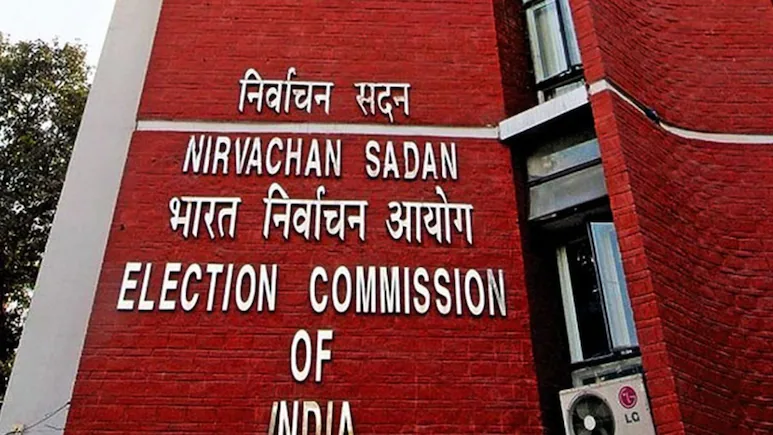Election Authority Responds to Concerns on Voter Privacy and Footage Retention Limits
In a recent development, the Election Commission of India (ECI) has firmly reiterated its stance on maintaining voter privacy amidst demands from political figures for the retention of polling footage beyond the standard 45-day period. This statement comes in response to critical remarks made by Congress leader Rahul Gandhi, who has expressed concern over transparency in the electoral process and the potential “match-fixing” of elections. The controversy arises in the context of the upcoming Maharashtra Assembly elections scheduled for November 2024, and also casts a shadow over the forthcoming Bihar Assembly elections later this year.
The Election Commission asserts that while it understands the public’s desire for transparency, extending the retention of polling footage could imperil the privacy and security of voters significantly. Sources within the ECI have clarified that preserving such footage for longer periods may inadvertently expose voters to intimidation and pressure from political entities and anti-social elements. Furthermore, the ECI highlights that current laws protecting voter anonymity serve as the foundation of democratic integrity.
Who, What, Where, When, Why, and How: A Detailed Breakdown
The ECI’s recent communications stem from a growing discourse on electoral integrity spearheaded by prominent political figures, notably Rahul Gandhi. On Saturday, he questioned the rationale behind the Election Commission’s established rule of deleting polling footage after 45 days. The Congress leader took to social media platform X, posing a series of pointed questions about the ECI’s practices, accusing the authority of obscuring evidence crucial to the electoral process.
In his public statements, Gandhi underscored that the deletion of videos and other electoral materials appears to contradict the public’s right to access information about the election. He argues that this practice raises alarms about the integrity of elections, insinuating that it facilitates a controlled electoral environment where a level of ‘match-fixing’ could occur.
This issue arises at a pivotal moment as India prepares for significant state-level elections, including the Maharashtra Assembly elections, making the demand for transparency particularly urgent. As per the report by[The Hindu](https://www.thehindu.com/news/national/), voters and political parties alike are increasingly concerned about the mechanisms in place to guarantee fair elections.
The crux of the Election Commission’s response lies in emphasizing the potential repercussions of retaining footage beyond the stipulated period. According to an ECI source, such retention could enable political entities to target specific individuals based on their voting history, leading to possible harassment. The Commission currently retains video recordings for 45 days to align with the legal timeframe allocated for any challenges related to the election process. If no petitions challenging the election results are filed within that period, the footage is duly destroyed to mitigate risks associated with misuse.
In essence, the Election Commission is endeavoring to maintain a balance between public transparency and safeguarding voter anonymity. It is also educative about the legal frameworks in place, stating that any violation of the secrecy around voting, including unauthorized disclosure of polling footage, is a punishable offense under Section 128 of the Representation of the People Act, 1951.
Safeguarding Voter Rights Through Legal Framework
The Election Commission’s position is fortified by legal precedents. The Supreme Court has reiterated that the right to vote encompasses the right to vote privately, a principle that must be safeguarded at all costs. The legal foundation for this is established in the Representation of the People Act of both 1950 and 1951, ensuring a democratic process allows for personal choice free from external manipulations.
Furthermore, the ECI sources emphasized that disclosing polling footage—essentially capturing the entry and identification of voters—mirrors a ‘live Register of Voters’ that could direct scrutiny towards specific individuals based on how they exercised their voting rights. Given the sensitive nature of this information, unauthorized access could compromise an elector’s safety.
The Election Commission continues to maintain that the privacy of voters is of paramount importance and that they are legally bound to protect this right diligently. The current policies regarding the retention and destruction of polling footage are designed to foster a voting environment that is free from fear and intimidation.
Political Fallout and Repercussions
The exchange between Rahul Gandhi and the Election Commission has sparked a larger discussion regarding electoral transparency in India. The Congress party has previously raised alarms about possible irregularities, including concerns over inflated voter rolls and the potential influence of external factors on election outcomes.
Earlier this month, Gandhi accused the ruling party of manipulating voter records and inflating turnout figures, casting doubt on the integrity of the electoral process as a whole. He expressed apprehension that similar tactics could be employed during the upcoming Bihar Assembly elections, leading to allegations of a compromised democratic process.
In response to Gandhi’s allegations, the Election Commission sternly rebuked the Congress party for presenting uncorroborated claims. The Commission underscores its commitment to maintaining a fair electoral process, asserting that allegations should be substantiated with credible evidence rather than mere speculation.
The ongoing discourse signifies a critical juncture in Indian politics. The tension between calls for transparency and the need to protect voter anonymity and security reflects broader themes of trust and accountability in governance. Political leaders must navigate these complex issues while ensuring that the rights of voters remain paramount.
This unfolding situation emphasizes the necessity for continued dialogue and reform surrounding electoral practices in India. As the nation gears up for significant elections, maintaining the integrity of the voting process and safeguarding voter privacy will be central to preserving democratic ideals.
For more on the importance of safeguarding electoral processes, visit[Election Commission of India](https://eci.gov.in/) and[Indian Express](https://indianexpress.com/).
DISCLAIMER
We have taken every measure to ensure that the information in this article and on our social media platforms is accurate, verified, and obtained from reliable sources. For feedback or complaints, please contact us at info@hamslive.com.


